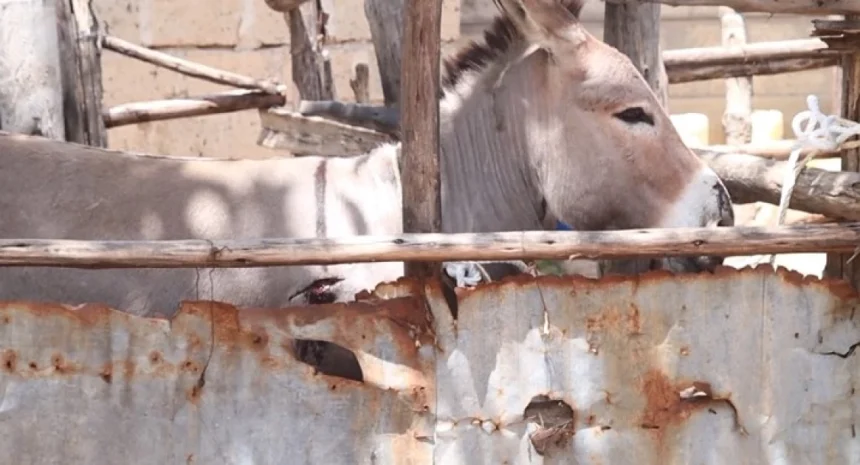A family in Machakos has been left in distress after their donkey turned violent and attacked both the mother and her son.
Selina Ndinda, one of the victims, said the donkey began by biting her and injuring both of her arms last Friday before turning on her 38-year-old son three days later. The attack left him with a fractured leg, and he is now hospitalised at Machakos Level 5 Hospital.
Ndinda explained that the incident occurred when she tried to stop her donkey from fighting with a neighbour’s donkey. In the commotion, she slipped and fell, at which point her donkey pinned her down and began biting her.
“I was trying to separate the donkey from fighting with the neighbour’s donkey, and in the process, it bit me in the arm, and I fell in the mud. Luckily, one of the neighbours rushed and drove it away,” Ndinda stated.
Following the attack, Selina now fears keeping the donkey and has sought advice from livestock experts. She has locked the donkey up and is considering starving it to death or selling it.
She noted that she had never witnessed a donkey biting a human before and speculated that the male donkey might have been agitated while searching for a mate.
Ndinda further shared her struggle to access rabies medication for her son at Machakos Level 5 Hospital. She said the cost of treatment is Ksh.5,000, which she cannot afford. She also revealed that she has not received a rabies shot due to financial challenges.
Witnesses of the incident have remarked that it is not uncommon for donkeys to bite people, particularly when they are agitated or on heat.
David Musembi, another resident, added that donkeys may become aggressive if they are not regularly engaged in work and instead remain idle.
Daniel Maweu, the area chief of Kathekakai, confirmed the incident and described it as unusual for domestic animals to attack humans.
He stated that agricultural officers from Machakos County had visited the site and advised residents on immediate emergency measures to take if attacked by livestock.
“It’s not common to find such cases. So, it’s advisable to seek medical services at a public general hospital to get treatment. We have contacted agricultural officers who will transfer the donkey to another location,” he stated.



